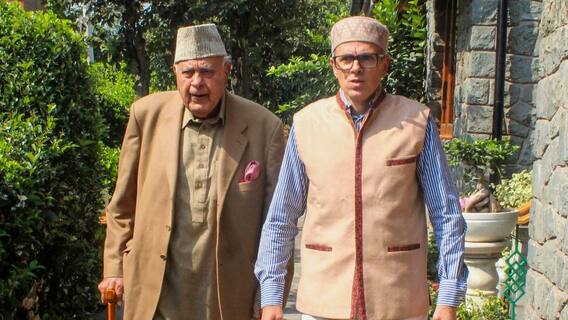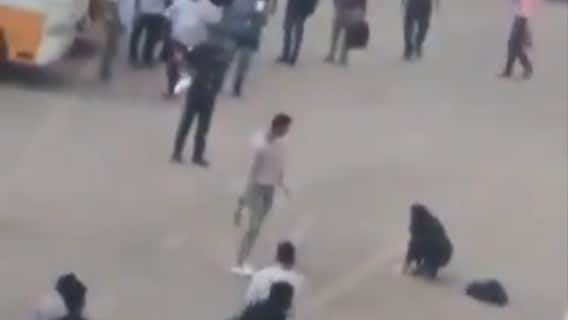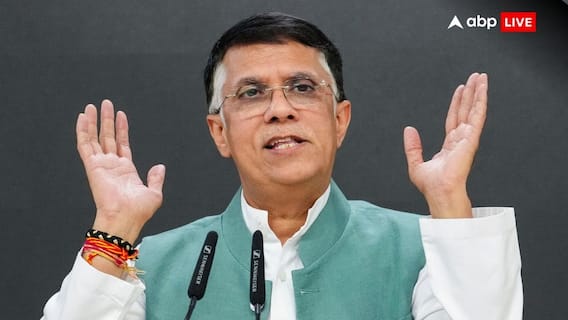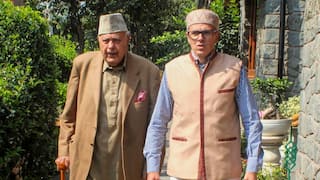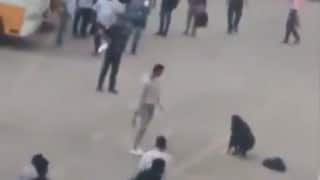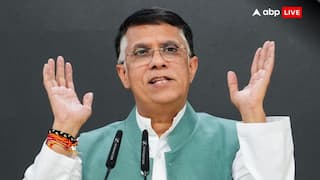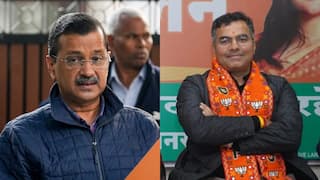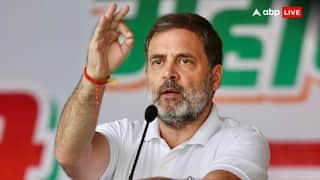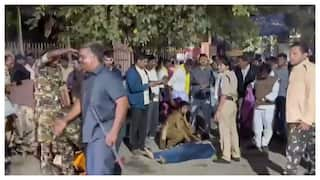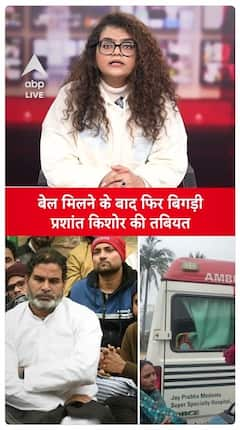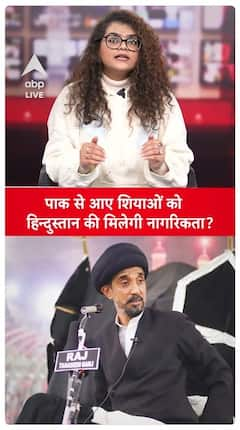Mallya extradition hearing: Defence witness recounts 'appalling' prison conditions in India

By Poonam Joshi
London [UK], Dec 15 (ANI): Rats, cockroaches, snakes moving around, local prisoners openly defecating in the prison yard, a giant rubbish heap, no electricity and absence of proper medical treatment to the ailing - these are few of the many conditions under which a group of British men, intercepted by the Indian Coast Guard in 2013, had to survive in Puzhal Central Prison in Chennai, India, according to a defence witness in the Vijay Mallya extradition hearing.
The embattled liquor baron arrived at Westminster Magistrate's Court on Thursday for the penultimate day of expert testimony in his extradition hearing.
Dr Alan Mitchell, a Scottish prisons expert and member of the Council of Europe's Committee for the Prevention of Torture and Inhuman or Degrading Treatment or Punishment, recounted the conditions and a conversation with one of the jail inmates to testify for the conditions in Indian prisons.
To this end, the defence also highlighted Mallya's own medical problems, which they suggested would be inadequately catered to by India.
Dr Mitchell had previously visited the Alipore prison in Calcutta in the course of the extradition hearing of the accused bookie Sanjeev Kumar Chawla earlier this year.
Dr Mitchell told the court: "I had never encountered prison conditions that were more deplorable than those that I found at Alipore jail, with no monitoring of the conditions or the welfare of the inmates."
Asked what constituted an effective monitoring system, Dr Mitchell said, "There should be regular visits by independent monitors What should be an effective prison monitoring system? "Should be regular and on an unannounced basis, the monitors should have free access to speak with inmates, scrutinize any documents that they might wish to see, to speak privately with staff and reports are compiled and made public."
When asked if the conditions were satisfied in terms of India, Mitchell denied.
At this point, Mallya's defence counsel Clare Montgomery turned the court's attention to conditions in the three main prisons in Mumbai - Yeravada, Byculla and Arthur Road jail, where the Indian Government hoped to hold Mallya.
The prosecution had in fact served the expert with pictures of the cells that the government has promised would be provided to Mallya.
Mallya's defence counsel Clare Montgomery cited a judicial review of conditions in Yeravada, Byculla and Arthur Road jails in Mumbai from earlier this year.
The report cited "overcrowded conditions, no proper sanitation or medical facilities and one prison which had a sanction for a population of just under 500, but in fact held in excess of 2300.
Among the orders made by the judicial review judges - were the provision of toilets and bathrooms, as well as orders on visits by experts and improved diets as well as the appointment of independent monitors.
The follow up proceedings three months after the orders were issued, in which the report flatly stated non compliance with the orders.
Why don't they comply, Montgomery asked Dr Mitchell.
"The decisions are taken at a local level by the superintendent of the prison and often they don't have the financial and personnel resources required for compliance. An issue that is exacerbated by the government hierarchy in India," Dr Mitchell said.
Dr Mitchell then went on to cite testimony he had obtained from one of the so-called 'Chennai Six' who were released earlier this month. The man was referred to as 'A' in court as he wanted to remain anonymous.
Medical and Dental Concerns:
"I had a conversation with one of the Chennai Six two days ago. In that conversation, it was set out that one of the persons who had been held in Chennai, in order to access medical treatment had to petition the High Court to be seen at a private hospital because of the lack of medical facilities in the court. He was transferred to the private hospital and was diagnosed with a cancer which has now spread and was subsequently sent back to the prison and thereafter for a period of 6 months prior to his release and received no further treatment."
"Another man had suffered a tooth abscess and had reported this to the prison doctor and requested a dentist but was not given the treatment. After a month he raised this with the consulate but didn't have any treatment, and it was only after his release that the issue was addressed."
Diet:
"Prisoners were supplied with one meal a day, between three and four ounces of chicken, while food parcels sent from the UK were confiscated before they reached the prisoners. While they could buy biscuits and fruits from the prison shop, that was the only options available."
Water:
"There were frequent shortages of water. For a period of two weeks, there was no running drinking water in the prison, they petitioned the prison authorities and were finally granted permission to get bottled water. In the mean time they were forced to use the open well which often contain the Heptatitis A virus which the witness was diagnosed with on his return to the UK."
Witness 'A' also said that exchanges between the diplomatic staff in Britain and India had amounted to nothing.
"In another example, 'A' was incarcerated in an Indian mental institution and forcibly administered drugs."
"Prison authorities took a dislike to four of the six and limited their area of exercise to the area immediately outside their cell instead of the larger exercise area. 'A' defied this order and used the larger area and was committed to a psychiatric hospital by the prison authorities for in his words, excessively walking around prison."
'A' described his physical transfer to the hospital - around 15 guards and prisoners came, grabbed him and took him to the psychiatric hospital. There he stated that he was tied up and gagged and beaten and was forcibly injected with medicine.
In addition, he described being force fed anti-psychotic tablets that he managed to spit out. He had been in the hospital for around two weeks and after his discharge, he complained to the British High Commission about his treatment and he was advised that the commission had already complained to the Ministry of Home Affairs.
Thereafter he was told by British officials to "drop" his complaint as failing to do so would cause "trouble for himself". The officials had also said that many complaints were made but nothing really happened.
"The prison was run by deputy superintendent and on one occasion witnessed the man beating a prisoner with a Lathi for no apparent reason. The prisoner was someone who could hardly walk and was barred from seeing the jail doctor."
The cell environment:
Dr Mitchell continued to describe the conditions endured by prisoner 'A'.
"There were 23 foreign nationals arrested from the ship. They were placed in a cell measuring 50 square metres and had an open toilet area which doubled as a shower area. He stated that for the first five months of imprisonment, the prisoners were provided with one blanket and no mattress. He described rats, cockroaches, snakes running around the prison. He described how local prisoners would openly defecate in the prison yard; the giant rubbish heap in the middle of the prison yard; often there was no electricity, in order for Indian prisoners to access any services, they had to bribe the guards but the Chennai six were not invited to bribe the guards."
"In order to obtain medical treatment, one had to pay the prison doctor. For a period of one year, the British High Commission had petitioned the prison authorities in order to allow the UK nationals to allow access to a telephone. The prison telephone only allowed local calls. He had to then bribe a member of the prison staff to provide a telephone line for the outside."
Dr Mitchell also described how prisoner 'A' had tried to request a change in conditions: "A' told me that one of his fellow prisoners every week for the past year made a formal application for a change of conditions to the local prison authorities but on no occasion was a response given."
Following this part of the testimony, Montgomery told the court that Dr Vijay Mallya suffered from Diabetes, Sleep Apnoea and a Coronary Heart Condition which required constant monitoring and treatment as well as a strictly regulated diet.
Asked if he had seen evidence that Dr Mallya's health would be tended at the Arthur Road jail, Dr Mitchell pointed to the Indian Government's submission that 3,000 prisoners at the Arthur Road were being served by just four doctors, with the presence of one doctor 24 hours a day aside from 4 "nursing assistants".
"But there is no mention in the report about how many of these doctors are actually available at any given time," Dr Mitchell said.
"It's extremely difficult to see how 4 doctors can serve the needs of 3000 prisoners effectively and look after the healthcare needs of the prison population. Furthermore, despite reference to 4 nursing assistants, there is no mention of nurses. So access to effective medical care would be insufficient."
As a comparison, Dr Mitchell said under UK law a prison population of 3000 would require "at least 12 doctors and a minimum 60 nurses".
In further damning evidence of the medical facilities available to prisoners in India, Dr Mitchell cited his visit to Alipore prison in Kolkata.
"My review of the medical records at Alipore set out that on admission there were only the most "cursory" notes of the doctor's encounter with the patient/prisoner. While blood pressure was taken little else was done. Certainly there was no treatment plans were written down for any of the prisoners."
"In respect to psychiatric care, it was simply appalling. Patients were made to live in absolutely filthy conditions. There was a reliance on only drug therapy. There were 30 people sitting outside on the corridors during my visit rocking back and forth."
Dr Mitchell also suggested that the Indian Government assurances could not be taken at "face value" as there had not been any independent monitoring of prisons in India.
The Crown Prosecution Service was clearly caught off guard by the damning nature of Dr Mitchell's evidence and resorted to question the credibility of the witness 'A' and the conditions that he had described at Chennai.
Mark Summers, acting on behalf of the Indian Government questioned Dr Mitchell about the procedural rules that need be applied when obtaining testimony from a witness.
The court heard that Dr Mitchell had been referred to witness 'A' by a member of Dr Mallya's defence team in the immediate aftermath of the release of the Chennai Six.
Summers also suggested to Dr Mitchell that witness 'A' could be using Mallya's platform as "to get compensation from the Indian Government".
Dr Mitchell, in response, insisted that first hand accounts such as that of witness 'A' were routinely included in the reports that he compiled as part of his work.
Summers also told chief magistrate Emma Arbuthnot that India was a "vast country" with each individual state running and operating its own prison system. Some states were larger and wealthier he said, adding that conditions in prisons vary from state to state as well as within a state.
Dr Mitchell agreed when asked by Summers that conditions in Alipore and Chennai might well be wholly different to those in Mumbai.
Summers also pointed to the efforts taken by the government of Maharashtra to improve conditions in the state's 54 jails.
Summers also said that the extradition trial of Dr Mallya was concerned only with one particular jail and one specific "special" area - Barrack 12 of Arthur Road Jail - where Dr Mallya will be housed if he is extradited to India.
Asked if he could comment on the conditions at Barack 12, Dr Mitchell said, "I have never seen any public information about the facilities at Barack 12. I have seen the assurances and photographs provided by the Indian government. But photographs are just that - photos of empty rooms. I am unable to offer any comment on how reflective the photos are of actual conditions on the ground. The government has also not given detailed explanations of the kind of conditions that Dr Mallya will face. Instead it has just referenced 'general' conditions. For instance, there is mention of 'drinking water' provided for Dr Mallya but no reference to the quantity and source of it."
Meanwhile, the judge has sought further clarification on prison conditions.
The extradition hearing will now resume on January 10, when arguments about the admissibility of evidence from both side will be considered. (ANI)
This story has not been edited. It has been published as provided by ANI
Trending News
Top Headlines







